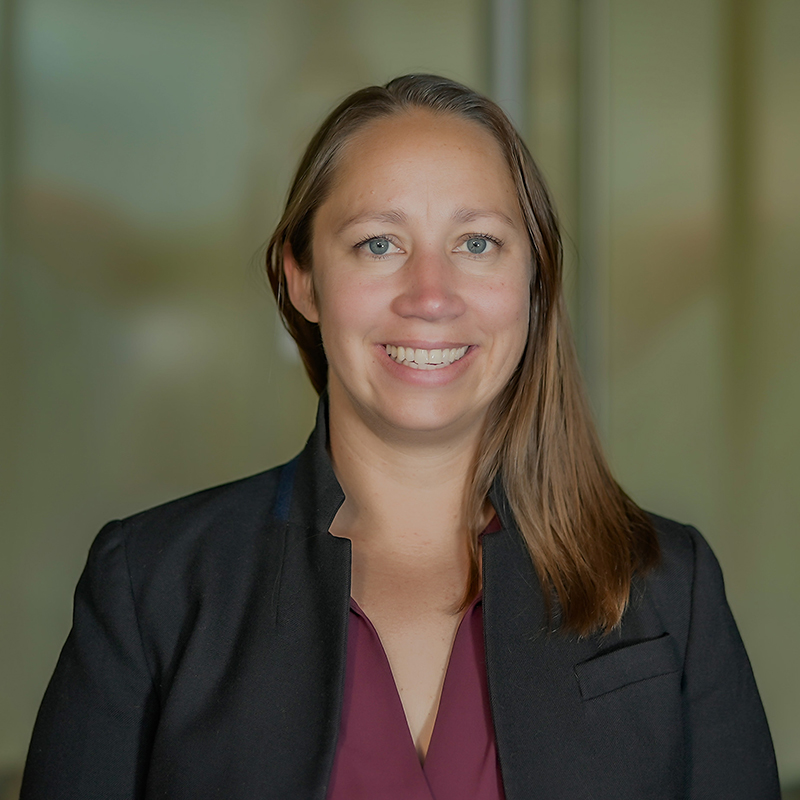
April 2, 2024
For Colorado families, getting by is getting tough
PERSPECTIVES | With Elise Henson
We have tools proven to help families but they can be difficult to access
This tax season, countless American parents will be waiting to receive their Child Tax Credit. They’ll use it to pay rent or other big bills, just like my husband and I plan to do. It’s welcome extra cash that can provide a cushion for emergencies or simply help cover the many everyday expenses that come with raising children.
Even for middle class families, getting by in Colorado is getting tough. When asked by the Colorado Health Foundation, Coloradans said their top concern is the rising cost of living.
A two-parent family with an infant and a preschooler living in the Denver metro area must earn $9,995 a month to meet their basic needs, and tax credits play an important role in covering those expenses.
Tax credits and the tax code itself are critical parts of the social safety net. They are proven strategies to help stabilize families financially and, for recipients of the Earned Income Tax Credit (EITC), significantly lower the rate of childhood poverty. That’s exactly why these tax credits were created. However, 28% of eligible Colorado families do not claim the EITC and, nationally, the families of 2.3 million children did not receive the expanded Child Tax Credit they were eligible to receive during the pandemic.
When it comes to public benefits — programs like SNAP, cash assistance or Medicaid — more than $60 billion goes unclaimed each year in the U.S. This is especially troubling because researchers at the Urban Institute have crunched the numbers and found that full participation in and full funding of benefits could dramatically reduce poverty.
In fact, if seven of the largest social safety net programs were fully funded and everyone who is eligible participated, poverty in Colorado would fall by varying percentages across different communities, with reductions estimated as high as 43%. Tax credits and public benefits are effective tools in addressing poverty and supporting families.
Tax credits and public benefits are effective tools in addressing poverty and supporting families. So why is so much money left on the table?
While there are many reasons that someone may choose not to apply for benefits or claim a tax credit, we know that our fragmented systems and complex requirements can be barriers in and of themselves. Even in a state like Colorado that has made meaningful efforts to simplify the process of accessing the safety net, it remains a serious challenge.
Our collective work is rooted in the belief that we all deserve dignity and support. And, when we all have those things, our communities are stronger and our kids have more opportunities to thrive.
– Elise Henson
Our team at Gary Community Ventures spoke to dozens of families in Colorado to better understand their experience as they tried to access these programs. They told us that simply figuring out which support they were eligible for could be a time-consuming, confusing and frustrating process.
And it’s not just hard for the public! We heard the same thing from community partners. Even seasoned navigators can find it difficult to keep up with the changes across a myriad of federal, state and county programs.
We worked closely with families and partner organizations to build a tool that can help. Together, we developed MyFriendBen to provide a better way to access benefits and tax credits.
Starting with feedback from family advisors, we created a bare-bones online benefits estimator that gives individuals and navigators a snapshot of programs a household is likely eligible for based on certain criteria, like income, household size or geography. Then, we used a rapid prototyping process to refine MyFriendBen through intensive user feedback (think surveys at the flea market, one-on-one phone interviews and in-person testing). With each round of feedback, we improved the user experience and added new functionality.
Now, more than 10,000 people in Colorado have used the tool, and families are typically eligible for $1,500 every month in cash or reduced expenses.
After answering a short set of questions about their household, users get a personalized benefit report that shows eligibility, the cash value of each program, and the time it takes to apply. Programs include child care assistance, health care programs, food and nutrition support, and utilities and rental assistance. Folks can go on to apply directly or choose to connect with a navigation partner for assistance, and can also get a short list of near-term resources, such as food and diaper banks.
Results for MyFriendBen shows that the tool’s power lies in its ability to:
- Create Awareness: Over 75% of users discover a new program.
- Estimate Accurately: Results are 90% accurate.
- Simplify Complex Systems: It takes about 6 minutes to check eligibility for more than 40 programs.
MyFriendBen is part of a growing movement to use technology and human-centered design to make accessing benefits easier.
For example, Civilla partnered with the Michigan Department of Health and Human Services to simplify a 40-page benefits application using human-centered design. The new application allows Michiganders to apply for 5 benefits in under 20 minutes and reduces staff processing time by 42%.
On the tax credit side, Code for America is working with officials in Arizona and New York to launch FileYourStateTaxes, a tax filing software that integrates with the IRS’s new free Direct File system being piloted this year. The integration will provide users with a seamless experience across federal and state systems.
Our collective work is rooted in the belief that we all deserve dignity and support. And, when we all have those things, our communities are stronger and our kids have more opportunities to thrive.
You can join us in this work! Email myfriendben@garycommunity.org and let us know if you want to bring MyFriendBen to your organization or community, or if you have an idea that will make accessing benefits friendlier.

EXECUTIVE DIRECTOR, MYFRIENDBEN AT GARY COMMUNITY VENTURES
ELISE HENSON
Elise Henson is a social entrepreneur with expertise in social services, education and youth development. She believes in the transformative power of user-centered design and civic engagement and gets inspiration and joy from working directly with Colorado kids and families.
As Executive Director of MyFriendBen, a Gary venture, Elise leads a multidisciplinary team developing a technology solution to make accessing benefits and tax credits easier. Previously, as Senior Manager, Programs and Partnerships at Gary, she piloted new ventures designed to improve outcomes for Colorado kids and families. From 2021-2022 Elise led Gary’s Learning League venture, an afterschool tutoring program designed to accelerate the academic recovery of 300 Denver students following the disruptions of the COVID-19 pandemic.
Related Content
- Impermanence Is The Future: Four Unsolicited Ideas For Sunsetting the Gates Foundation
- When We Gather: Relationships, Innovation and Harmony
- MyFriendBen Expands to Pueblo County
- 2025 Gary Advocacy Legislative Session Recap
- Gary Community Ventures Announces Recipients of its 2025 Request for Grant Proposals
